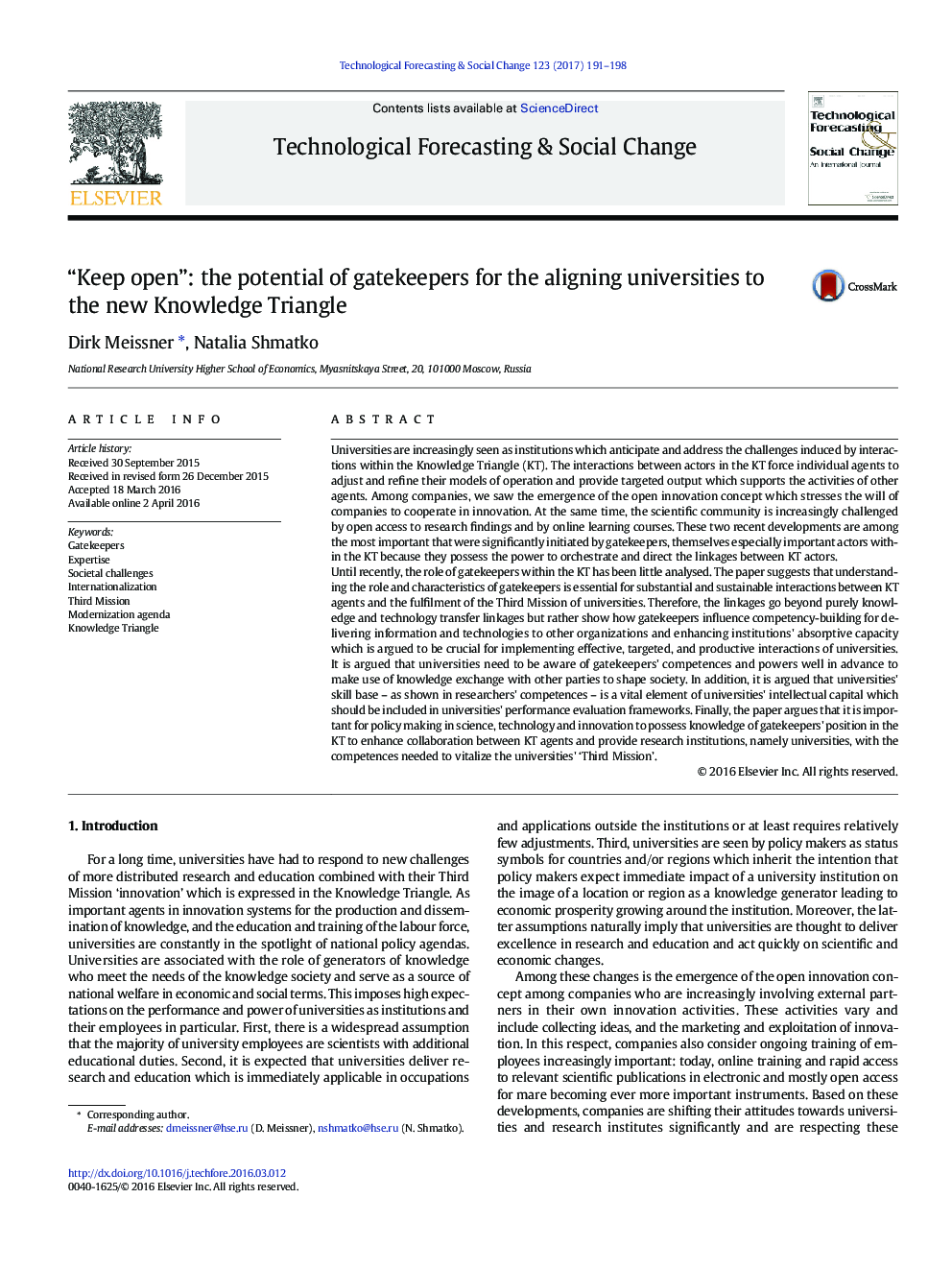| Article ID | Journal | Published Year | Pages | File Type |
|---|---|---|---|---|
| 5036813 | Technological Forecasting and Social Change | 2017 | 8 Pages |
â¢Role and characteristics of gatekeepers for interactions between KT agentsâ¢Fulfilment of Third Mission of universitiesâ¢Competency-building for delivering information and technology to other organizationsâ¢Universities' skill base as vital element of universities' intellectual capital
Universities are increasingly seen as institutions which anticipate and address the challenges induced by interactions within the Knowledge Triangle (KT). The interactions between actors in the KT force individual agents to adjust and refine their models of operation and provide targeted output which supports the activities of other agents. Among companies, we saw the emergence of the open innovation concept which stresses the will of companies to cooperate in innovation. At the same time, the scientific community is increasingly challenged by open access to research findings and by online learning courses. These two recent developments are among the most important that were significantly initiated by gatekeepers, themselves especially important actors within the KT because they possess the power to orchestrate and direct the linkages between KT actors.Until recently, the role of gatekeepers within the KT has been little analysed. The paper suggests that understanding the role and characteristics of gatekeepers is essential for substantial and sustainable interactions between KT agents and the fulfilment of the Third Mission of universities. Therefore, the linkages go beyond purely knowledge and technology transfer linkages but rather show how gatekeepers influence competency-building for delivering information and technologies to other organizations and enhancing institutions' absorptive capacity which is argued to be crucial for implementing effective, targeted, and productive interactions of universities. It is argued that universities need to be aware of gatekeepers' competences and powers well in advance to make use of knowledge exchange with other parties to shape society. In addition, it is argued that universities' skill base - as shown in researchers' competences - is a vital element of universities' intellectual capital which should be included in universities' performance evaluation frameworks. Finally, the paper argues that it is important for policy making in science, technology and innovation to possess knowledge of gatekeepers' position in the KT to enhance collaboration between KT agents and provide research institutions, namely universities, with the competences needed to vitalize the universities' 'Third Mission'.
